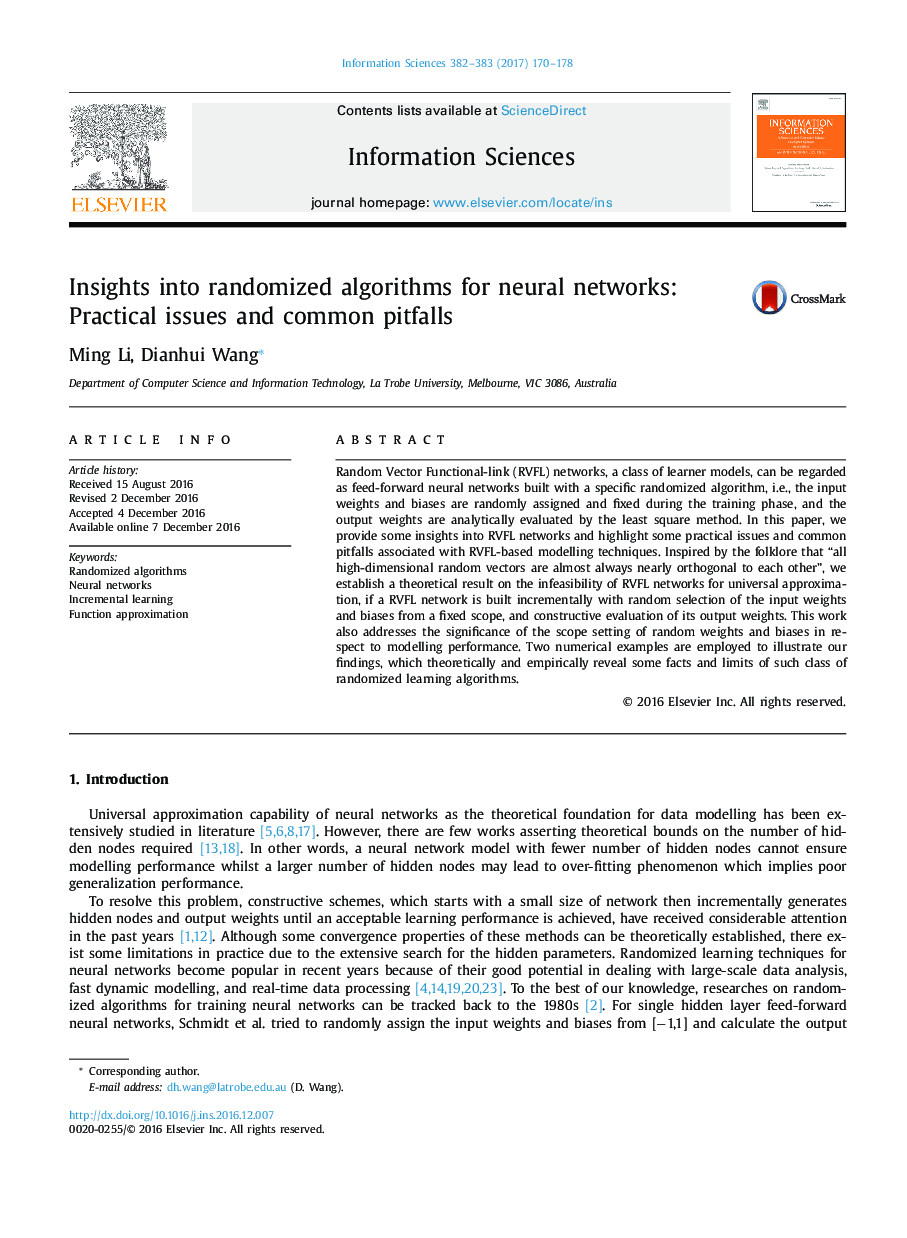| Article ID | Journal | Published Year | Pages | File Type |
|---|---|---|---|---|
| 4944604 | Information Sciences | 2017 | 9 Pages |
Abstract
Random Vector Functional-link (RVFL) networks, a class of learner models, can be regarded as feed-forward neural networks built with a specific randomized algorithm, i.e., the input weights and biases are randomly assigned and fixed during the training phase, and the output weights are analytically evaluated by the least square method. In this paper, we provide some insights into RVFL networks and highlight some practical issues and common pitfalls associated with RVFL-based modelling techniques. Inspired by the folklore that “all high-dimensional random vectors are almost always nearly orthogonal to each other”, we establish a theoretical result on the infeasibility of RVFL networks for universal approximation, if a RVFL network is built incrementally with random selection of the input weights and biases from a fixed scope, and constructive evaluation of its output weights. This work also addresses the significance of the scope setting of random weights and biases in respect to modelling performance. Two numerical examples are employed to illustrate our findings, which theoretically and empirically reveal some facts and limits of such class of randomized learning algorithms.
Related Topics
Physical Sciences and Engineering
Computer Science
Artificial Intelligence
Authors
Ming Li, Dianhui Wang,
